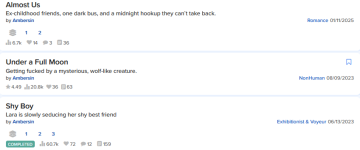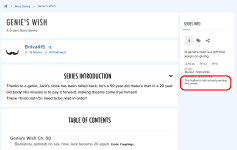Britva415
"Alabaster," my ass
- Joined
- Nov 19, 2022
- Posts
- 3,685
I don't get it. You're the one who said the definitive conclusion was "apparent" in the last chapter, and asked why it was necessary to mark the series as completed.But it isn't just the events of the last chapter that determine the end of the series. Life isn't that way most times. A real-life story doesn't just come to an end. There is ALWAYS questions left unanswered, things left unsaid. In a written story there are numerous ways to end it. As I said earlier:
Comshaw



